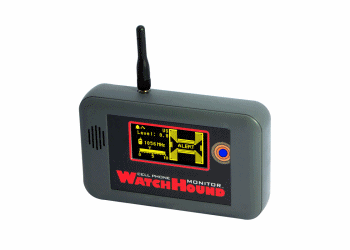Cell phone frequency finder Miami Beach Coral Gables.
Cell phone frequency finder Miami Beach Coral Gables. Most everyone knows how a metal detector works by now; in simple terms, you walk between the bars, the magnetometers SEND some magnetic energy to objects on your person, the item disrupts the magnetic field, the detector senses this and alerts. This is the same for detectors from $100 to $10,000
Cell Phone frequency finder Miami Beach s work exactly the opposite; they LISTEN for the radio signals that come out of the cell phones. This is completely different and so it is helpful to explain how to deploy them and how they can be a major part of your security procedures to do the best possible job. When in doubt CALL first.
What Cell phone frequency finder Miami Beach WILL detect upon:
Hearing a cell phone sending a text. Cell phone frequency finder Miami Beach
Hearing a cell phone receiving a text (they respond back to the sender). Cell phone frequency finder Miami Beach
Making a call. Cell phone frequency finder Miami Beach
Receiving a call. Cell phone frequency finder Miami Beach
Registering on the cellular network (more about this later). Cell phone frequency finder Miami Beach
What Cell phone frequency finder Miami Beach WON’T detect upon:
Cell phone frequency finder Miami Beach Power OFF: Cell Phone is OFF (the transmitter sends nothing, so no cell phone detector can hear it)
Cell phone frequency finder Miami Beach Passing by The cell phone is ON and the wearer simply walks past the Cell phone frequency finder Miami Beach (but the cell phone sends nothing at that instant in time since you aren’t texting or talking) and that random registration burst probably won’t happen exactly at that moment either…these are not “metal detectors” so they can’t detect a cell phone not sending anything nearby. Nothing sent; nothing detected.
Cell phone frequency finder Miami Beach Bluetooth: The Cell phone frequency finder Miami Beach also won’t hear Bluetooth; that is a “paired” communications where the device only transmits the Bluetooth energy under controlled circumstances. So if the cell phone is ON and their Bluetooth earpiece is paired with it and the cell phone doesn’t ring and you do not make a call then the Bluetooth unit won’t transmit; this is done to save that tiny battery inside of the earpiece.
Cell phone frequency finder Miami Beach WiFi: The Cell phone frequency finder Miami Beach s don’t hear WiFi for essentially the same reason as Bluetooth; if your facility allows you access to WiFi access points and your cell phone is turned ON and it is permitted to connect to the WiFi then, and only then, will your WiFi transmitter be permitted to be ON. Of course, this detector will also detect the Registration burst since that cell phone is turned ON and we will catch it to be sure, but NOT because of the WiFi. That isn’t ON until you connect to the WiFi access point…which probably won’t ever happen inside of a secure facility. Note that if you decide to use your cell phone to provide a portable “hotspot” to other cell phones in the area since you aren’t permitted WiFi then the detector does pick up the cell phone signal easily.
How cell phones register on the network and how we use this fact to catch them.
Cell Phones RANDOMLY send ‘pings’ of short information bursts to the cell network to let it know where they are, request if there are voicemail messages in the queue, texts waiting for them, etc. Many of the detectors on the market will not detect these VERY short bursts (about 1/10 of a second) but we do. This is good and bad…here is why:
If you walk past the Cell phone frequency finder Miami Beach with your cell phone ON (as previously described) and the cell phone isn’t talking, texting or registering then the Cell phone frequency finder Miami Beach won’t hear it…this is because the cell phone has a very small battery and regardless of the fact that it is a cell phone, it won’t send radio signals until it needs to; if it did then the battery would go dead in an hour and that would not be useful to any of us.
So: when you place the Cell phone frequency finder Miami Beach inside of a secure area AND then when a concealed cell phone registers on the network we will let you know that it happened. That is a good thing; no metal detector can do this.
These bursts are not at any specific time; we see them from 2 to 5 times per hour, but no one really knows for sure…we just lie in wait for them to ping and then alert you accordingly which a metal detector cannot do as you have to be exactly between the bars in order to have them work…we must use each machine the correct way to get it to perform the job it was designed to do.
When is registration a blessing and a curse at the same time?
Cell phone text & voice calls transmitted signals are a “managed” signal for the most part; this means while you are moving toward a tower the system tells your cell phone to turn the power down. If you are moving away from it, they say turn your power up. This makes your tiny battery last longer and we are all happier for it…but then comes the “curse” part.
When a cell phone “loses sight” of the cell phone network then it is no longer a ‘managed’ signal and that can be ‘induced’ by storage in a locker or below ground for example where it can’t hear its network.
This means that WHEN it does transmit the registration burst (and this can be quite often) the power output will be at MAXIMUM the cell phone has the capability of. Blessing? Sure; that means we can catch them easily. Curse? Yes; that too; since cell phone signals transmit through walls…and everyone knows that.
When can an unmanaged cell phone signal be a problem? Many facilities require that you put your cell phone in a locker at the front of the building and then the cell phone usually loses contact with the network. Should the cell phone be turned ON when in that locker some of them will begin a series of ‘cries for help’ or constant ‘registration’ bursting to try and acquire connectivity?
This is an unmanaged call and typically at full power which can travel several floors or through many walls as it tries to connect, and a detector placed near it will alert on this signal constantly…this is NOT a “false” alert, the detector is simply doing its job and informing you of the event. Be aware & use it to your advantage; not as a problem or issue to be avoided.
Where else can this Cell phone frequency finder Miami Beach phenomenon occur?
Suppose a cell phone is taken below ground level or inside of any “shielded” environment where it is on the person, powered up and on “standby” but can’t connect with the network. Some cell phones have been observed to constantly attempt to ping the network with repetitive registration bursts over and over trying to contact the system to no avail.
Properly placed and monitored Cell phone frequency finder Miami Beach will alert on this and inform you immediately despite the fact that no OUTSIDE signal can get in…and that means the Cell phone frequency finder Miami Beach is doing a great job of alerting you to the event. These cell phones are subject to their internal programming by their manufacturer; so we see some that DO register with zero signals and some that do NOT. Facility managers ask why the Cell phone frequency finder Miami Beach has been known to alert in “radio dark” areas and this is why. Sometimes the cell phones are designed to NOT do anything when there is no network as well.
Consider that our very expensive ($5000+) metal detectors can’t do this at all no matter the threat level unless you specifically walk between the bars, the fact that our highly engineered Cell phone frequency finder Miami Beach WILL alert you to cell phones in unauthorized areas can be a major component of your security policy…if properly deployed.
Where to properly place the Cell phone frequency finder Miami Beach for maximum effect is very important; pay close attention here to get the most out of your security Cell phone frequency finder Miami Beach system with the maximum policy enforcement:
You can install them at the door, in front of the entrance to the secure area BUT be aware that nearby (lobby, street, etc.) locations where cell phones are permitted to be used and these radio signals pass through walls…we expect and demand that they do…so this is no surprise. We just need to take it into account. Cell phone frequency finder Miami Beach placed there become Behavior Modifiers which is GOOD.
If you want the HIGH DETERRENT factor that our detectors are well known for then, by all means, place one AT the entrance but be sure to turn it down LOW on sensitivity so it doesn’t just alert all day long…after a while, the personnel nearby will become quite annoyed with it and either unplug it or simply ignore it completely…even if it is telling you exactly what you wanted to know. This is the correct way to implement an effective security policy. Get every bit of the deterrent factor you can and then catch the ones that were missed by placing detectors INSIDE of the secure area. This will maximize the investment AND modify their behavior as well.
Suppose you have a secure area/ part of a building/ room/ floor where cell phones are NOT allowed and it is below, above or adjacent to an NON-secure area where cell phones ARE permitted to be used (cafeteria, smoke area, restroom, hall, etc.). This creates manageable issues and must be taken into account.
The way to deal with this is to put the Cell phone frequency finder Miami Beach as FAR away from the non-secure area (don’t forget the floor above and below too!) and adjust the detector low enough to try and not hear outside of the protected area while hearing the inside…this is a little difficult and here is why:
How far away will Cell phone frequency finder Miami Beach detect cell phones? There is no ‘finite and specific’ distance that cell phones will be detected. This is due to the variable power output discussed previously. There are 9 steps of power up/ down that a cell phone will send out when under control of the network so no one knows what power setting the cell phones are allowed to send at PLUS:
There are several FORMATS of cell phone signals and in order of the most-to-least power being transmitted they are as follows:
IDEN (aka Nextel) has the most power of any digital cell phone signal currently
GSM (AT&T, T-Mobile, etc.) has the next highest power-per-bit quantity
CDMA (Sprint, Verizon, etc.) also known as “spread spectrum” has a lower power per bit
LTE/ HSPA and other 4th generation (4G) types of ultra-wide-bandwidth transmissions
This means that the Cell phone frequency finder Miami Beach will alert on a GSM cell phone when it is farther away than for example a CDMA cell phone if both are “unmanaged” (at maximum power) or “managed” (variable power but probably lower than full) at the moment of transmission. That makes it difficult to measure exactly where the pickup zones are, how far away we can ‘hear’ it and alert the incident to you. This is why there is no “default” or “factory setting” for sensitivity.
Handheld Cell phone frequency finder Miami Beach; what they do and don’t do:
Handheld Cell phone frequency finder Miami Beach are great for certain specific applications; and, like everything, they have capabilities we employ but need to understand them to get the most from their ability. (We don’t call it “limitations”).
The good parts:
Portable, easily carried from one area to another, no requirement to be ‘fixed’
Bring the detector to the area of perceived problem immediately
Lower cost of ownership (they cost a lot less than fixed detectors)
Hunt down a fixed ‘bug’ or surveillance device (camera, wireless mike, GPS tracker, etc.)
Use them in classrooms to find students texting in class as they “sit still” to be found out
Expect a handheld detector to pick these types up; they work and work well BUT:
The bad parts:
Remember that discussion at the start on the 5 ways cell phones is detected? Well unless one of these is happening at the EXACT instant you walk by with your handheld Cell phone frequency finder Miami Beach it won’t hear a cell phone.
Sometimes people order the handheld detectors to go and search for people carrying cell phones against the policy but are unhappy when they don’t detect cell phones. People see you coming with your detector in hand and don’t send texts or talk on their cell phone AND if the cell phone is powered off or isn’t registering then the Cell phone frequency finder Miami Beach won’t find them.
Don’t expect a handheld detector to just find phones in people’s pockets for the above-stated reasons; use them to find bugs, cameras & trackers that transmit at regular, scheduled intervals.
Handhelds cost less because they DO less; (you get what you pay for)
Less filtering inside to screen out 2-way radio signals (usually ‘permitted’ inside)
Smaller antenna and only 1 vs. some with multiple antennas = shorter pickup range
Fewer controls to ‘manage’ or fine-tune the unit to accommodate environment changes
Get the most out of your security system:
If you have lockers; put them under control of the guards and make sure cell phones are OFF
Put a HIGH DETERRENT kit at the door and turn the sensitivity & volume down lower
Put Cell phone frequency finder Miami Beach INSIDE of the secure area(s) and post warning signs for maximum effect
Walk-test the facility inside and out of the secured areas once the Cell phone frequency finders Miami Beach are placed
Keep sensitivity high enough to alert but low enough to NOT detect cell phones outside
[email protected] / [email protected]
Spy Store Miami & Spy Shop Miami
Miami Beach • Miami Gardens • Aventura • Coral Gables • Doral • Hialeah • Hialeah Gardens • Homestead • Kendall • Key Biscayne • Miami • Miami Lakes • North Miami • North Miami Beach • Opa-Locka • Palmetto Bay • Pinecrest • Pinecrest / Monroe Couty • South Miami • Miami Beach






